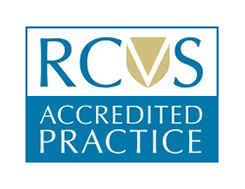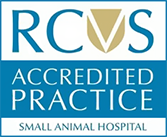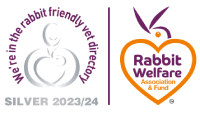Choosing a Dog
Things to consider before bringing a dog into the family:
How will your new dog fit into your current lifestyle? Think of the future, and what may change going forward. Do you have the time, energy, and resources to care for and train a young and energetic puppy, or would it be better to visit a rescue centre for an older companion? Not everyone has the time, space, or financial capacity to support owning a dog, so it’s important to consider the long-term commitment before you jump in and bring your new friend home.
Which breed of dog should I get?
Whether you’re considering a pure-bred puppy or a rescue, the breed of your new family member will influence their personality and how they fit in with your day-to-day life. Consider the average lifespan of your breed of choice, any potential known health issues that may arise, along with energy levels and enrichment needs before you look for a breeder or a rescue to begin the process.
You should never buy a dog online. Avoid sites like Gumtree, Facebook Marketplace, etc. A good breeder will have Kennel Club registered puppies and papers for them. Never meet a breeder away from home. When you see your puppy, he or she should be with their littermates and their mother, and they should be raised in comfortable, warm, and loving environment.
It is always difficult to walk away from a puppy, but puppy farms breed sick animals and puppy farmers don’t care about the welfare of their pups – if you have any doubts, it is better to reconsider, do some more research, and wait until you are happy to proceed.
What to look for when you see a litter of puppies.
Puppies should be clean and keen to interact, with clear eyes, nose, and ears, and no signs of sickness, diarrhoea, or parasites on their skin. A good breeder will have performed any necessary health checks for their specific breed, and their puppies will be vet-checked, have had their first vaccine, and a microchip before they leave mum to go to their new homes.
Puppies should not be rehomed before 8 weeks old at an absolute minimum. It is tempting to take them sooner, but there are important developmental milestones that must be reached before puppies leave their brothers and sisters and their mother. Removing them too early can influence their behaviour, health, and well-being later in life.
Choosing an adult dog.
Rehoming a dog can be a hugely rewarding experience! Some older dogs need new homes due to bereavement or a change in family circumstances, while others may have had issues that the previous owner couldn’t manage. The most important thing is to work closely with your rescue centre of choice, to ask as many questions as possible, and to answer all their questions as honestly as possible to ensure the dog you choose is the right fit for you.
Whether you intend to rehome a dog or buy from a breeder, it’s important to be responsible, and do your research. Rescue centres and good breeders are always happy to answer questions; they want the best for the dogs in their care.
Choosing a Cat
Things to consider before bringing a cat into the family:
How will your new cat fit into your current lifestyle? Do you have the time, patience, and energy for a brand-new kitten, or would you perhaps find an older cat a better fit? Is it safe in your neigbourhood for a cat to go outside (consider traffic, foxes, etc.), or are you looking for an indoor only companion? Some purebred cats should only be kept indoors, while others are high-energy and have specific needs for enrichment. We are always happy to advise prospective cat owners on the best option for their household, so please give your local branch a call if you need to!
Which breed of cat should I get?
You may be drawn to a particular breed of cat based on appearance, but remember to consider personality, breed traits, energy levels, and grooming before making your choice. Long-haired cats require brushing and maintenance that short-haired breeds do not! Some breeds have specific health concerns, so it is important to take your time to research your breeder and ensure appropriate health testing has been carried out. For example, Maine Coone and Ragdoll cats can suffer from a heart condition called Hypertrophic Cardiomyopathy, which is easily screened for with a DNA test.
If in doubt, ask one of our expert team who will be happy to help.
Pedigree kittens are usually rehomed at around 13 weeks of age and should come fully vet-checked, fully vaccinated, and registered with either Governing Council of the Cat Fancy (GCCF) or The International Cat Association (TICA).
You should never buy an animal from Gumtree or Facebook Marketplace.
What to look for when you see a litter of kittens.
When you visit a litter of kittens, you should be seeing them in the place where they spend most of their time – the environment should be clean and tidy, and mum should be present. Make sure all the cats look happy and healthy – well fed, with clear eyes and ears! There should be no sign of sickness, diarrhoea, discharge from the eyes or nose, coughing, or sneezing. Look for signs of fleas or other parasites, too.
Don’t just look at one kitten, see them all.
Kittens should not be rehomed before 8 weeks of age at a minimum, so proof of date of birth is always a good thing to ask for. People are often keen to rehome kittens as soon as they start eating solid food, but there are important milestones kittens need to reach before they leave mum and removing them too soon can influence their behaviour, health, and well-being later in life.
Choosing an adult cat.
Sometimes an older cat is a better fit, and there are plenty in rescue centres looking for the perfect sofa to land their paws on! Adult cats will already have an established personality, so it’s important to ask good questions about what each cat is used to – have they been going outside? Do they prefer a quiet household? Are they used to children, dogs, or other pets if you have them?
Cat rescuers are always keen to match the cat to the perfect home, so there are no silly questions.







